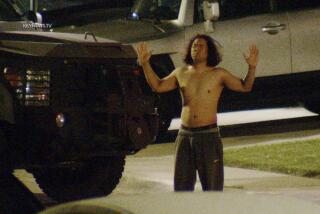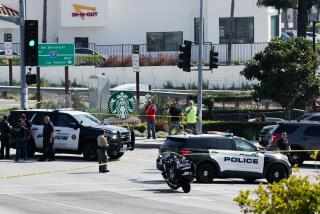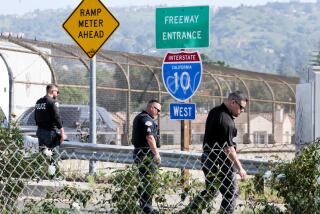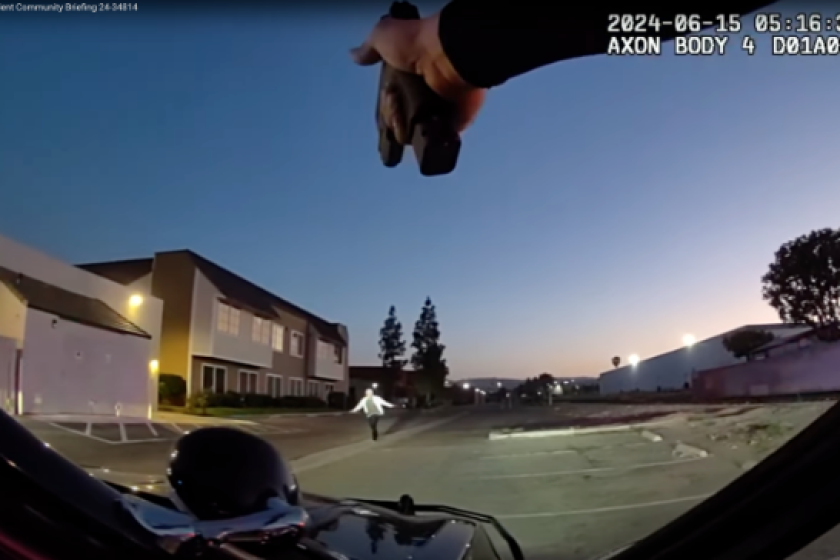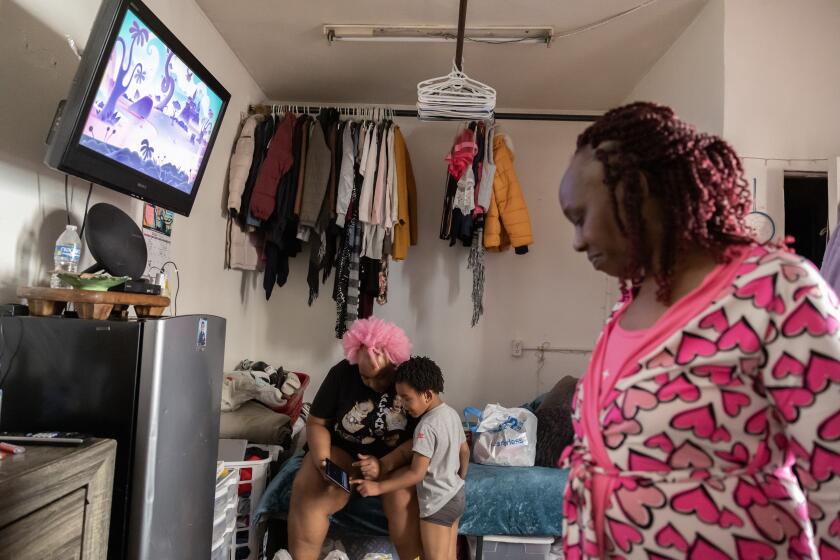Man accused of killing Whittier cop appears in Bellflower court as 19 officers watch
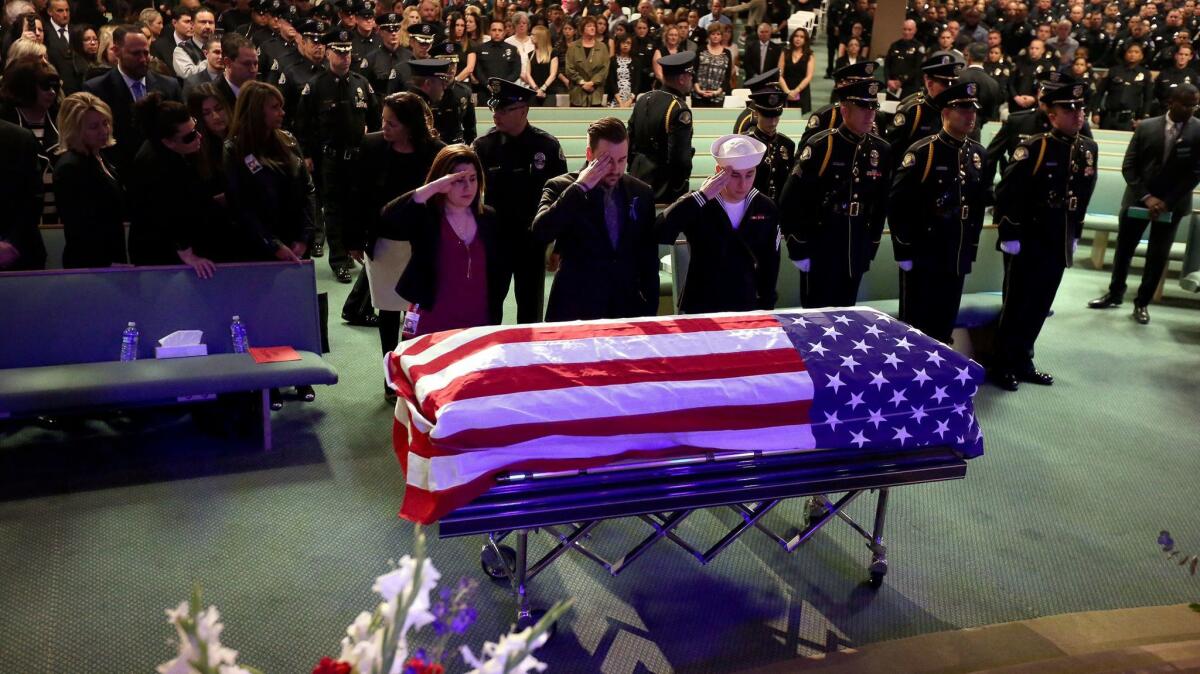
An East Los Angeles gang member stood impassively in a courtroom Monday as 19 Whittier police officers grimly bore witness to a legal proceeding for the man accused of killing one of their colleagues.
Michael C. Mejia, 26, showed little emotion during a hearing in Bellflower where more than half the audience was made up of police officers who had worked with Whittier Officer Keith Boyer.
Mejia is accused of killing Boyer on Feb. 20 during a gunfight, which also left a second police officer, Patrick Hazell, wounded. His plea was delayed until April 5 so that a permanent attorney could be assigned to his defense.
The Whittier officers kept their eyes fixed on Mejia throughout the short proceeding; he avoided eye contact with the men and women dressed in blue.
Wearing a brown shirt and pants and sporting a face tattoo for his East L.A gang, Winter Garden, Mejia briefly whispered to a deputy public defender. He showed no visible signs of wounds suffered during the gunfight with police officers.
A convicted felon, Mejia is accused of killing his cousin, Roy Torres, in East L.A. before fleeing with Torres’ car and crashing into two other vehicles at a Whittier intersection.
When Boyer, 53, and Hazell came to the scene of the accident, they ordered Mejia out of his car, and he opened fire as they approached him, prosecutors allege.
Mejia killed Boyer and wounded Hazell, authorities said. Mejia was wounded during the gun battle.
He was charged with two counts of murder and one count each of attempted murder, carjacking and being a felon in possession of a firearm. He also faces special circumstance allegations of multiple murders, the murder of a police officer and murder to escape arrest, making him subject to the death penalty.
Prosecutors said a decision on whether to seek capital punishment would be made later.
After the shooting, Mejia was taken to a hospital and initially booked for violating probation.
At the time of the killings, Mejia was under the supervision of the Los Angeles County Probation Department. He had been jailed and released for violating probation five times since the summer of 2016.
Mejia had previously served a prison sentence for grand theft auto and earlier had been sentenced to four years in prison for robbery.
The double killing came just over a week after Mejia finished his latest jail stint. Sheriff’s homicide investigators said that while on probation Mejia repeatedly served short jail sentences for violations that included possessing narcotics and fleeing police officers.
Some critics blamed criminal justice reform measures, particularly AB 109, for putting Mejia back on the street.
In response to prison overcrowding, Gov. Jerry Brown in 2011 supported the bill, which shifted many inmates from state prisons to county jails. The measure also allowed some inmates to serve a “split sentence,” with part of the time on probation instead of behind bars.
But state corrections officials have said that AB 109 played no role in Mejia’s release and that he served his full prison terms.
Two L.A. County supervisors have launched an investigation into the probation department’s handling of Mejia and why his probation had not been revoked.
To read the article in Spanish, click here
Twitter: @lacrimes
ALSO
Human bones found in backyard of Buena Park home
Kids, ages 7 to 11, accused of ransacking San Pedro daycare, causing thousands of dollars in damage
More to Read
Start your day right
Sign up for Essential California for news, features and recommendations from the L.A. Times and beyond in your inbox six days a week.
You may occasionally receive promotional content from the Los Angeles Times.
